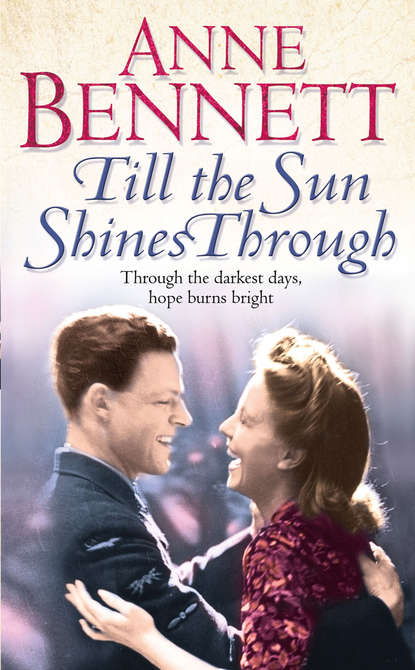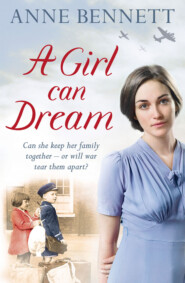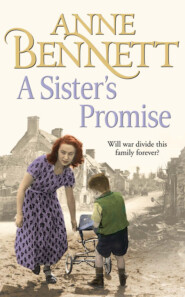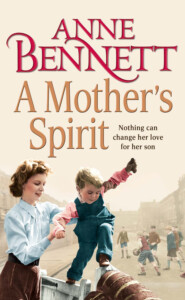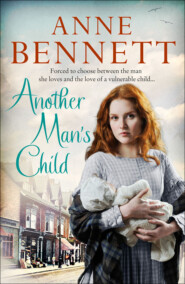По всем вопросам обращайтесь на: info@litportal.ru
(©) 2003-2024.
✖
Till the Sun Shines Through
Настройки чтения
Размер шрифта
Высота строк
Поля
Although Bridie barely remembered the two brothers she still got that blood was thicker than water when all was said and done and a brother was a brother. ‘I’m sure they’d be delighted if you were to join them,’ Rosalyn told Bridie. ‘They’d hardly refuse now, would they?’
‘Probably not,’ Bridie said, considering it. ‘But I don’t think I’d like America, not from what they say in their letters anyway. I’m not like you, Rosalyn, I’m happy here and Mammy and Daddy would hate me to leave.’
Rosalyn knew that was true. Bridie had been pampered all her life, being the baby of the family. After the deaths of Robert and Nuala, Sarah had taken even greater care of her youngest child. She was slight, very small, and Sarah thought she hadn’t the constitution or physique of the children she had left to rear.
She appeared incredibly frail, yet Bridie never sickened for anything. After Robert and Nuala died, Sarah worried constantly about her. The choicest cuts of meat were hers and there was always a newly laid egg and fresh milk whenever she wanted it. She was expected to do little in the house: Sarah said she did enough at school and encouraged her to go out into the sunshine, or sit by the fire to rest herself.
Rosalyn often resented the way Bridie was treated. Apart from her elder brother Frank, there were also four much younger weans at home: her mother had suffered a series of miscarriages after her birth and so she’d been eight when Declan was born, followed by Nora, Connie and Martin. She seldom had a minute to call her own and yet Bridie could swan around the place, being petted by everyone because she looked so sweet.
And she did, that was the very devil of it. She was elfin-looking with large, expressive, deepbrown eyes, ringed with long black lashes, which showed up against her creamy-coloured skin, and just a hint of pink dusted across her cheeks. Her nose was like a little button, and her mouth a perfect rosebud above a slightly pointed chin that showed how stubborn she could be at times, not that she was thwarted in many things she wanted. Bridie’s shining glory though was her hair. It was thick, the colour of deep mahogany, and hung in natural waves which were tied back with a ribbon, curling tendrils escaping and framing her pretty little face.
She was well loved, Bridie. Her parents were fair besotted by her and seemed to find it amazing that they had given life to this beautiful, fine-boned child and Mary and Terry petted and spoilt her too. She was also a favourite in Rosalyn’s own home and even Frank was gentle with her.
Yes, Bridie had a fine life, Rosalyn thought. Why ever would she want to leave? Yet a restlessness had begun to stir in Rosalyn and she knew Barnes More, which was just three miles away from Donegal Town in neighbouring Northern Ireland, would not be able to hold her for long. ‘Well,’ she said, ‘I intend to go as soon as the opportunity arises. Mammy’s brother Aiden keeps talking about trying his luck in the States, but he hasn’t done anything about it yet. He’s sweet on Maria Flanagan and that’s what holding him, Mammy says. I don’t intend to get sweet on anyone over here. There are men galore in America. I’ll chance my arm there.’
‘It’s not your arm they’ll be looking at I’m thinking,’ Bridie said with a broad grin.
‘Bridie McCarthy,’ Rosalyn shrieked in mock indignation. ‘I’ll …’
But Bridie never found out what Rosalyn was going to say because just at that moment they heard Aunt Delia’s voice in the yard. ‘Rosalyn! You, Rosalyn!’
‘Oh, Dear God, now I’ll catch it,’ Rosalyn said with a groan, catching sight of her mother’s angry stance from the barn window as she stood in the yard below them.
Bridie watched her cousin run across the yard to her mother, feeling sorry for her. She had hardly any time to herself. Once, Bridie had asked her mother whether she thought her aunt Delia was unfair on Rosalyn.
‘Well, she has her hands full with four wee ones and all,’ Sarah had said. ‘And,’ she’d added, ‘Francis isn’t always easy. ’Course, your father won’t hear a word said against him.’
Bridie was familiar with the story of how her father Jimmy and his wee brother Francis were the only ones left after cholera had swept through their family. Female relations had arrived in droves to claim wee Francis who was but five. Jimmy had been twenty years old then and refused to let him go. Instead, he had farmed the land and reared the boy himself.
Jimmy had married Sarah when she was just seventeen and she helped in the rearing of Francis, who was by then twelve years old. Later, as a grown man, he had met and married Delia and Jimmy had helped him buy the farm beside them when it became vacant. Because of all this there was a special feeling between the brothers, though they were totally different both in looks and temperament, and the families saw a good deal of one another.
‘What’s wrong with Uncle Francis?’ Bridie had asked, intrigued, for she thought her uncle grand, full of fun and wit and always ready for a wee game or a laugh.
Sarah had given a sniff and with that sniff and from the look she also threw her, Bridie knew she was wasting her time asking. ‘Never you mind, Miss,’ Sarah had snapped. ‘Delia has her work cut out, that’s all I’m saying.’
Doesn’t need to take it all out on Rosalyn, Bridie thought now as she watched Rosalyn trailing behind her mother across the orchard that separated their house from her aunt and uncle’s. Rosalyn had her head down and Bridie guessed she was crying.
She wondered if she should have written and asked Mary if Rosalyn could come with her to Birmingham. But she really wanted Mary to herself. She doubted that Rosalyn would be let come anyway. How would her mother manage without her? Then there was the job she was starting soon in the shirt factory in town. She would be beginning that before Bridie had to go back to school.
At one point it seemed that even Bridie wouldn’t be able to go because Sarah didn’t want her travelling alone. Normally, Ellen would have come over like a shot to take her back, but she was struck down in bed with a bad attack of rheumatics and couldn’t make the trip.
But Bridie was desperate to go and when Terry offered to go with her as far as the boat and meet her from it on her return, Sarah reluctantly agreed. Bridie had grown very fond of Terry who’d been friendlier to her since Mary had left, knowing how much Bridie would miss her. Now the two got along well, even though Terry was seven years older than her.
Despite Bridie’s spirited claim that she could look after herself, she was glad Terry was beside her to negotiate rail buses and trains, especially when she saw the big port of Belfast where the ferry was waiting. Bridie suddenly wished Terry was coming all the way with her. Terry wished that too when he saw Bridie hanging over the deck rail, the case hurriedly borrowed from their uncle Francis beside her nearly as big as she was.
For two pins he’d have hopped up there with her and hang the consequences. He was at any rate heartily sick of the farm. But he knew he couldn’t do that to his father, not just leave him in the lurch that way. So he waved goodbye to his little sister as the boat set sail and hoped she’d remember what he’d said about changing trains at a place called Crewe.
However, Bridie had the vulnerable appearance of someone who needed looking after and, in a boat packed with Irish families, she was befriended by many a mothering soul. They were a great comfort when she felt a little sick and a true help when it was time to disembark. Someone eventually settled her onto a train bound for Crewe and, once on the train, Bridie again found that people were only too happy to assist a wee girl travelling alone and there was someone to carry her case and direct her to the right train for Birmingham. Bridie knew without all those kind people she would have been utterly lost.
Even with their help though when she finally alighted from the train at New Street Station, she felt exhausted and frightened, and stood on the windy, dirty platform, surrounded by bags, wishing she’d never come. She was scared witless of the noise around her. People shouted at each other above the din and there were sudden yells as people greeted others and sometimes gales of raucous laughter.
Porters rushed about with trolleys full of suitcases. ‘Out the way,’ they’d cry, or more politely, ‘Mind your backs.’ But above it all was the noise of the trains: the hiss of the water on the tracks, the pants of steam, the ear-splitting screech of the whistles and the roar of trains approaching other platforms, arriving in a cloud of smoke.
Never had she been so glad to see anything as she was to see Mary’s welcoming face, her warm, comfortable arms enveloping Bridie immediately and taking much of her fear away. ‘Oh God, Mary, how do you live in such a place?’ she cried. ‘How d’you stand it?’
‘Och, sure you get used to it,’ Mary said dismissively. ‘Come on away home. I’ve the house shining like a new pin and food fit for a king to cook for you.’
Bridie was terrified by the tram ride, far too frightened to take in the things of interest they passed which Mary pointed out to her. They alighted by the shops in a road called Bristol Street and she felt as if all her bones had been loosened. They turned up a little alleyway called Bristol Passage and came out into Bell Barn Road and Bridie stood for a moment and stared. There were row upon row of houses squashed up together, all grim and grey, matching the pavements and cobbled streets. But Mary didn’t seem to notice her sister’s horrified face. ‘Come on,’ she urged and, pointing down the road, added, ‘Aunt Ellen’s house is just down there. She’s in Bell Barn Road, and we’re just beside her in Grant Street. We’ll go around later, I’m seeing to things while she’s laid up.’
Mary’s front door opened straight onto the street, with another door in the entry leading down to the courtyard. Bridie was to find out during her stay that six houses opened on to that yard. The brewhouse was there too, where Mary, along with everyone else, did her washing on Mondays with the one shared tap. Mary told Bridie the tap often froze altogether in the winter, but added it was a grand place to hear all the gossip while you awaited your turn.
On fine Monday mornings, the washing lines crisscrossing the yard were filled with flapping washing, lifted into the sooty Birmingham air with the aid of tall props. The miskins were kept there too, where people tipped their ashes and where the communal dustbins often spilled rubbish on to the cobbles, and beside them, at the bottom of the yard, were lavatories which were shared by two families.
But that first day, looking around the inside of Mary’s room, Bridie thought it was as small as it had looked from the road. Her head was reeling. She had no understanding of such places, of so many people, families, living together: it seemed there was no space, no air for them to breathe at all.
And yet Mary seemed ridiculously proud of her house and she had made an effort for Bridie’s visit. A new rag rug was in front of the shining fender and the mantelshelf was dotted with plaster ornaments each side of the large wooden clock in the centre. Above the mantelpiece was the familiar picture of the Sacred Heart of Jesus, and to the side of the fire was an alcove, which housed the wireless. Bridie remembered how Mary had written home in such excitement about it.
We have to have something called an accumulator to get it to work and have it charged at the garage on Bristol Street. However, really it’s no problem and grand altogether to have music on or even a play to listen to now and again.
‘We have a new gas cooker too now,’ Mary said proudly. ‘We used to cook on the fire when we first came here.’
Bridie had noticed the hooks on the chimney wall, reminiscent of her own home, and she now turned to look at the large, squat, gas cooker positioned between the table on one side and the door to the scullery on the other. There was also a press, which Mary called a sideboard, with more ornaments on it. ‘I keep good plates and glasses and such in there,’ Mary said as she tipped water from a lidded bucket into the kettle. ‘I don’t keep anything of importance in the scullery, the walls run with water in the winter.’
Bridie had a peep inside and could see, even on this summer’s day, what Mary meant. There was little there, just three shelves, housing a variety of odd plates and cups, a stone sink and steps leading to the coal cellar. There was no tap, but Bridie had expected none as Mary had already told her family when she wrote to them that they got their water from a tap in the yard that often froze altogether in the winter. ‘Shall I take my case up first and get settled in?’ she asked.
Mary nodded. ‘Aye, if you like. I’ll have a cup of tea waiting for you when you come down. I’d best start the tea or Eddie will be in on top of us and not a bite ready.’
‘Where am I to sleep?’
‘In the attic, pet,’ Mary said. ‘We’ve borrowed a mattress for you, but the sheets and blankets are my own. The bed’s made up for you, but you can put your things in the cupboard. There’s a hook if you want to hang anything up, unless it’s anything special like your clothes for Mass – I’ll put those in my wardrobe. Leave them down on my bed and I’ll see to them.’
In the attic another rag rug had been placed between the mattress laid on the floor and the cupboard, covering the bare boards. There was no other furniture and the room was dim with the only light coming from a dusty skylight.
Having put her belongings away, Bridie was glad to return to the living room. Mary had drawn the curtains and lit the gaslights which now popped and spluttered. She’d lit the fire too and it danced merrily in the hearth and Bridie was glad of it, for the evening had turned chilly. She had to admit that it all looked rather cosy. Mary handed her a cup of tea while she lit the gas beneath a pan of potatoes and another of cabbage.
‘Now,’ she said, ‘I don’t have to do the bacon for a while yet, so take the weight off your feet and tell me the news from home.’
What Bridie found particularly hardest to cope with in those early days in Birmingham was the noise. Inside the cottage in Ireland, it was often so quiet you could hear the peat settling into the grate, the ticking of the mantle clock, or her father puffing on his pipe.
Outside, she might hear the gentle lowing of the cows and the clucking of the hens, or the sweet singing of the birds. She’d hear the wind setting, the trees swaying and the soft swishing sound as the breeze rippled through the long grass, or the river rumbling as it ran across its stony bed.
There was nothing to prepare her for this crush of humanity, the walls so thin every sound the neighbours made could be heard. She hated the shrieking of the children in the street just outside the window and the cackling laughter and shouting of the women doing their washing in the brewhouse. She hated the tramp of hobnail boots on the cobbles as the men made their way to work and the factory hooters slicing into the quiet of early morning.
But most of all she hated the traffic: the clanking trams and rumbling omnibuses, the roar of petrol-drawn lorries and vans and cars. Even the dull clop of horses’ hooves disturbed her. These city horses were as unlike those at home as it was possible to be. They were tired and sad-looking. And why wouldn’t they be, Bridie thought, with hard roads beneath their feet day in, day out. She wondered where they were stabled because there was precious little grass to be found. She guessed the horses saw as little of it as the people.
And that was another thing, the people. They unnerved her. She supposed they were kind enough, but their voices grated on her and she could barely understand what they said anyway, their accents were so alien. She couldn’t seem to get away anywhere to be alone, to have a bit of privacy, and she wondered if Rosalyn would have made a better fist of it than she was doing. Frowning, she admitted she probably would.
She couldn’t say any of this to Mary though. How could she? Mary had chosen to make her home in this hateful place and so Bridie couldn’t go around moaning and complaining. But she was incredibly homesick and eventually felt if she didn’t tell someone how she felt she would burst and so, without mentioning a word to Mary, she poured her heart out to her mother in a letter, telling her everything that she hated about the city her sister lived in. She told her parents of something else too. She’d wondered when she’d arrived why there were so many idle men about. They lolled on street corners, hands usually in their pockets and flat caps on their head. Back home in Ireland, she’d seldom seen a man idle in the middle of the day, unless it was a Fair Day, and she’d asked Mary about it, revealing all to her parents in a letter home:





